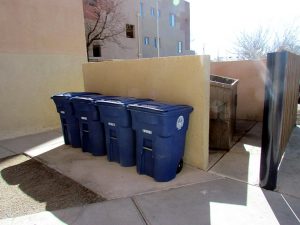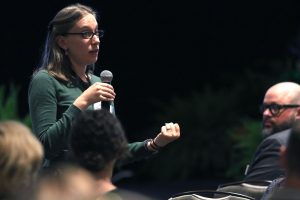
A rendering of FCC’s planned MRF in Houston.
Over the last year, global facility operator FCC was determined to win a bid to sort Houston’s recyclables, and in the end it sweetened its offer to ensure it would be chosen. A company leader recently explained the details behind FCC’s strategy.


 Tennessee’s fourth-largest city has removed glass from its single-stream curbside program.
Tennessee’s fourth-largest city has removed glass from its single-stream curbside program. Starting this year, all municipalities in New Jersey will be able to use one online platform to communicate recycling program information to their residents.
Starting this year, all municipalities in New Jersey will be able to use one online platform to communicate recycling program information to their residents.
 Certain tools such as pay-as-you-throw pricing and multi-family requirements have produced compelling diversion results in communities across the country. Leaders of several programs recently shared advice for colleagues who hope to achieve similar success.
Certain tools such as pay-as-you-throw pricing and multi-family requirements have produced compelling diversion results in communities across the country. Leaders of several programs recently shared advice for colleagues who hope to achieve similar success. The manager of a shuttered mixed-waste processing facility in Montgomery, Ala. said depressed commodity prices and low waste volumes doomed the project. Additionally, bankruptcy filings outline millions owed to creditors.
The manager of a shuttered mixed-waste processing facility in Montgomery, Ala. said depressed commodity prices and low waste volumes doomed the project. Additionally, bankruptcy filings outline millions owed to creditors.


 In Toronto, as in other cities, multi-family residential recycling rates have been stubbornly lower than their single-family counterparts. As Canada’s largest city works to boost recycling rates, a local MRF operator is experimenting with recovering recyclables from multi-family garbage streams.
In Toronto, as in other cities, multi-family residential recycling rates have been stubbornly lower than their single-family counterparts. As Canada’s largest city works to boost recycling rates, a local MRF operator is experimenting with recovering recyclables from multi-family garbage streams.